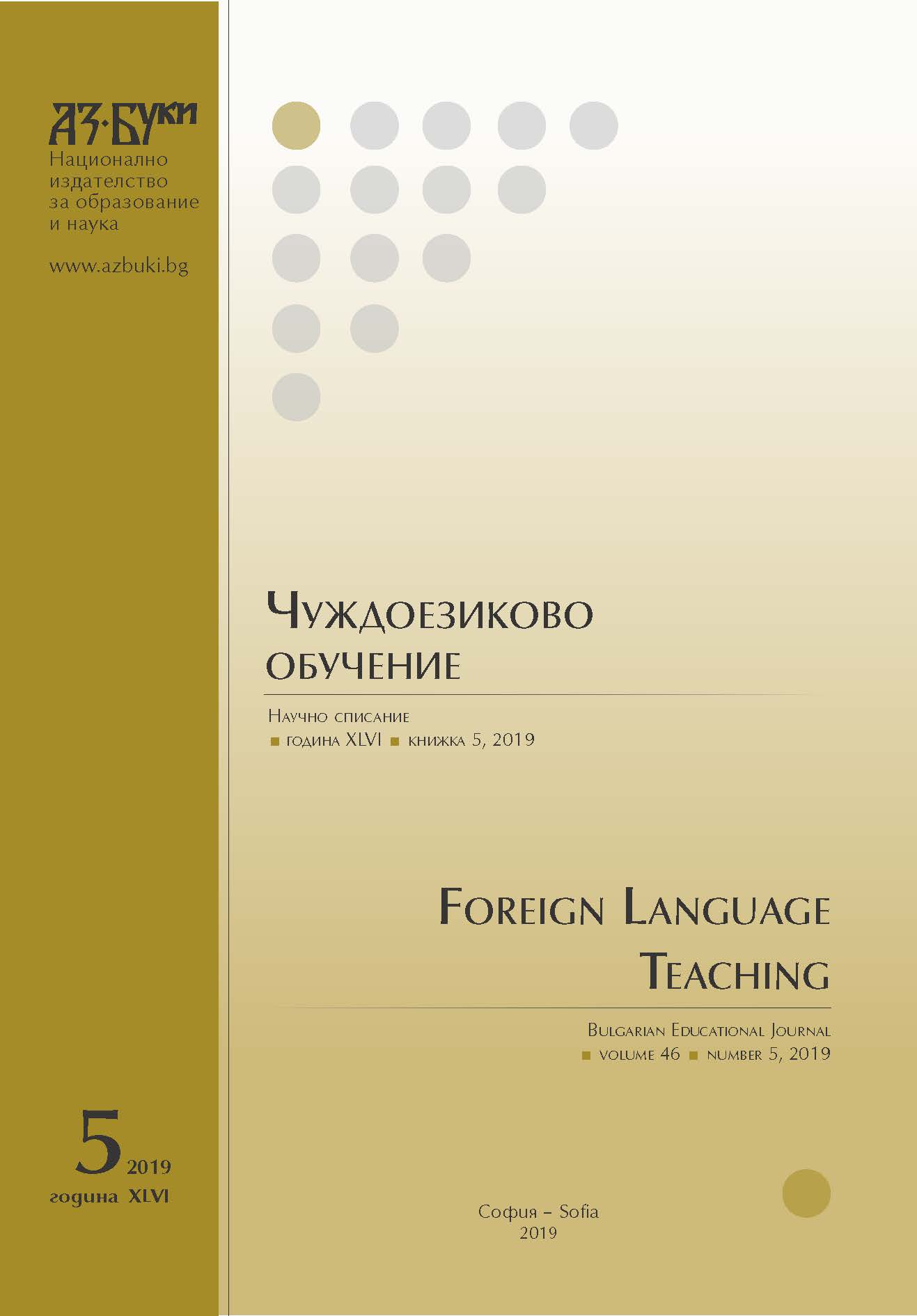Езикова теория и езикова реалност – категориите вид, време, наклонение и залог в учебните помагала по новогръцки на гръцкото средно образование
Linguistic Theory and Linguistic Reality – the Verbal Categories Aspect, Tense, Mood and Voice in the Textbooks and Teachers’ Methodological Guides for the Greek Middle School
Author(s): Boris Vounchev, Elena ChaushevaSubject(s): Social Sciences, Language and Literature Studies, Education, Foreign languages learning, Applied Linguistics, Language acquisition, Cognitive linguistics, Descriptive linguistics, School education, Vocational Education, Adult Education, Higher Education , Philology, Inclusive Education / Inclusion
Published by: Национално издателство за образование и наука „Аз-буки“
Keywords: Modern Greek; aspect; tense; voice; mood
Summary/Abstract: The paper proposes a critical reading of the approach to the verbal categories aspect, tense, mood and voice in the Modern Greek Language, as adopted in the textbooks and teachers’ methodological guides for the Greek Middle School (Gymnasium). The analysis of the textbooks and the methodological guides takes into consideration the following aspects: sources of theoretical framework, adoption of up-to-date theoretical insights, theses and terminology, differences in the approach to the verbal categories and use of controversial or non-conforming to the language reality theses. The main conclusions are that the contemporary linguistic approaches are incorporated in the methodological guides, while the textbooks adhere to obsolete theoretical framework and terminology, and that a number of important issues pertaining to the Modern Greek verbal system are insufficiently analyzed or not analyzed at all.
Journal: Чуждоезиково обучение
- Issue Year: 46/2019
- Issue No: 5
- Page Range: 458-467
- Page Count: 10
- Language: Bulgarian
- Content File-PDF

